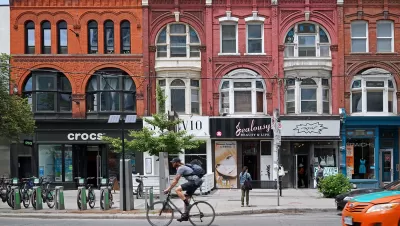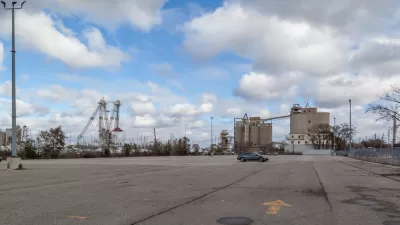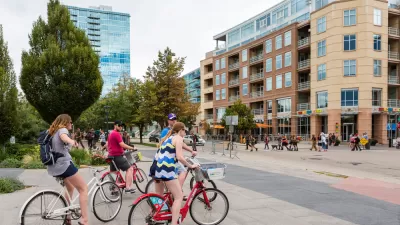A study published recently in the Journal of the American Planning Association finds that mixed-use neighborhoods in Toronto are only delivering benefits to those who can afford to pay a premium.

"A new study by a School of Planning researcher at University of Waterloo shows mixed-use development might be increasing income inequality," according to an article on the CBC News website.
"Data collected between 1991 and 2006 in Toronto showed that housing options in mixed-use zones — those mixing residential and commercial properties — continued to be less affordable than housing in other parts of the city," adds the article.
The researcher is Markus Moos, and he provides several quotes in a press release announcing the new study to explain the implications of the findings: "Walking to a nearby fancy coffee shop is nice but the premium people pay for that luxury means the barista can't afford to live near their job."
The press release and the article both present ideas for how mixed-use neighborhoods can better deliver benefits across the economic spectrum. The press release especially makes it clear that mixed-use neighborhoods are not "inherently misguided."
"What’s needed now is good policy to follow good planning," says Tara Vinodrai, a professor at Waterloo’s Department of Geography and Environmental Management in the press release. "This includes inclusionary zoning, density bonuses linked to affordable housing, affordable housing trusts, and other relevant methods."
FULL STORY: Mixed-use developments make housing more expensive, says study

Maui's Vacation Rental Debate Turns Ugly
Verbal attacks, misinformation campaigns and fistfights plague a high-stakes debate to convert thousands of vacation rentals into long-term housing.

Planetizen Federal Action Tracker
A weekly monitor of how Trump’s orders and actions are impacting planners and planning in America.

Chicago’s Ghost Rails
Just beneath the surface of the modern city lie the remnants of its expansive early 20th-century streetcar system.

Bend, Oregon Zoning Reforms Prioritize Small-Scale Housing
The city altered its zoning code to allow multi-family housing and eliminated parking mandates citywide.

Amtrak Cutting Jobs, Funding to High-Speed Rail
The agency plans to cut 10 percent of its workforce and has confirmed it will not fund new high-speed rail projects.

LA Denies Basic Services to Unhoused Residents
The city has repeatedly failed to respond to requests for trash pickup at encampment sites, and eliminated a program that provided mobile showers and toilets.
Urban Design for Planners 1: Software Tools
This six-course series explores essential urban design concepts using open source software and equips planners with the tools they need to participate fully in the urban design process.
Planning for Universal Design
Learn the tools for implementing Universal Design in planning regulations.
planning NEXT
Appalachian Highlands Housing Partners
Mpact (founded as Rail~Volution)
City of Camden Redevelopment Agency
City of Astoria
City of Portland
City of Laramie





























